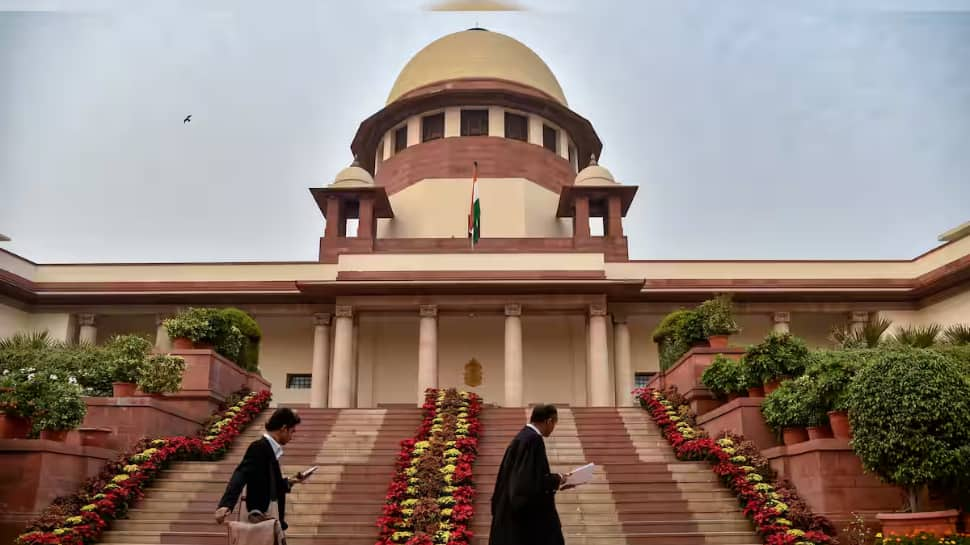 |
|
The Supreme Court of India recently adjourned the hearing on the highly contentious Krishna Janmabhoomi-Shahi Eidgah Masjid dispute, a case that has deeply divided religious communities and sparked intense debate for years. The decision to postpone the hearing until April 1, 2025, signifies a prolonged legal battle and underscores the complexity of the issues involved. The court's extension of its interim order, initially issued in January 2024, maintains the status quo, preventing any significant actions concerning the disputed property. This temporary measure demonstrates the court's careful consideration of the sensitive nature of the case and its potential repercussions. The underlying issue is the claim by Hindu petitioners that the Shahi Eidgah Masjid, a mosque located in Mathura, Uttar Pradesh, was constructed on land that is believed to be the birthplace of Lord Krishna. They argue that a temple dedicated to Lord Krishna previously stood on this site. The case involves multiple suits filed in Mathura courts, all seeking to reclaim the land for Hindu religious purposes. The Supreme Court's decision to consolidate these numerous suits into a single proceeding demonstrates an attempt to streamline the legal process and avoid redundant or overlapping arguments. This consolidation, while intended to increase efficiency, also highlights the scale and complexity of the legal challenges in this case. The consolidation, however, has been met with some objections from the Shahi Eidgah Masjid Management Committee, raising concerns about procedural fairness and the implications of this streamlining effort.
The Supreme Court's handling of the appeals presented by the Shahi Eidgah Masjid Management Committee is crucial in upholding the principles of due process and ensuring fair representation for all parties involved. The court has to carefully balance the rights and concerns of all parties to ensure a just and equitable outcome. The Court's earlier instructions to all parties to submit concise written submissions and relevant judgments aim to focus the arguments and expedite the legal proceedings. By limiting the length of submissions, the court endeavors to maintain efficiency without compromising the thoroughness and depth of the legal arguments. This approach underscores the Court's effort to manage a case with considerable public interest and complex historical and religious dimensions. The Supreme Court's careful consideration of the case reflects its understanding of the potentially significant ramifications of its decision, not just on the immediate parties but also on the broader societal implications for religious harmony and the peaceful co-existence of diverse communities in India. The court's cautious approach is not merely a procedural matter but also a vital aspect of ensuring a responsible and just resolution to a highly sensitive issue.
The historical context of the dispute adds another layer of complexity to the legal proceedings. The land in question has profound religious significance for both Hindus and Muslims, making the resolution of the case exceptionally sensitive and politically charged. The case has drawn significant public attention, not just within India but also from the global community. The ongoing legal process has raised questions about the interplay between religious freedom, land ownership rights, and the role of the judiciary in resolving sensitive religious disputes. The Supreme Court’s decision to adjourn the hearing emphasizes the meticulous scrutiny and judicial deliberation required for such a high-stakes case. The outcome will likely have significant repercussions on religious harmony and social order in India. The long adjournment suggests the complexity of the legal issues involved and the necessity for careful consideration before reaching a final determination. The Court's commitment to extending the interim order underlines its intention to maintain stability and prevent any actions that might escalate tensions while the case continues to be deliberated upon. The continued legal battle reflects the deep-rooted and complex nature of the dispute, underlining the immense challenges involved in resolving long-standing religious and land-related conflicts. The meticulous judicial process reflects the importance of fairness, impartiality, and the responsible adjudication of cases with profound societal ramifications.
The extended timeline until April 2025 indicates that the resolution of this dispute will require further time and careful consideration by the Supreme Court. The long-term implications of the decision extend beyond the immediate parties involved and will potentially affect future legal frameworks and policies regarding religious land disputes. The case serves as a significant benchmark for how courts navigate complex religious and political issues, setting precedents that will likely influence similar cases in the future. The outcome of the case will be closely watched by legal experts, religious organizations, and the general public, highlighting the extensive societal impact of this landmark legal battle. The Supreme Court's handling of the case will undoubtedly shape future legal interpretations of religious property rights and the judicial approach to resolving complex interfaith conflicts. The court's commitment to a just and equitable outcome, even if it means delaying the final decision, underscores the importance of meticulous legal processes and the careful consideration of potential consequences. The resolution of the Krishna Janmabhoomi-Shahi Eidgah Masjid dispute holds immense significance not only for the individuals and communities directly involved but also for the broader Indian society and its pursuit of peaceful co-existence amongst diverse religious communities. The Supreme Court's role in this case is pivotal in safeguarding the principles of justice and upholding the rule of law amidst a highly sensitive and politically charged environment.
Source: SC Adjourns Hearing On Krishna Janmabhoomi-Shahi Eidgah Masjid Dispute, Extends Interim Order
